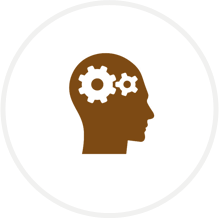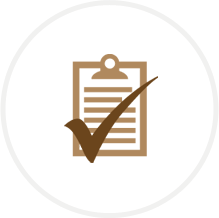Pharmacies are constantly faced with the challenge of being held accountable for every transaction they conduct while maintaining productivity and profitability. With shrinking margins, evolving compliance requirements and new healthcare plans, taking advantage of technology solutions will help reduce operating costs while providing more valuable and expanded services. Stay ahead of the curve to seamlessly adapt to new challenges as they arise.
A pharmacy is essentially a warehouse of products that needs to be tracked, managed and sold. While there are similarities to a commercial environment, a pharmacy also has a host of other requirements to fulfill like prescription and ID validation, highly accurate dosage dispensing and patient information security. Implementing the right tools will allow you to expand the services you can provide and keep your pharmacy efficient, accurate and profitable.
What are the Key Benefits of a Pharmacy Management System?
Increase accuracy with a pharmacy management solution that provides the cost saving benefits of:
- Improved Workflow – Scan documents, barcodes, IDs and medication all with the same device.
- Efficiency – Eliminate paper-based workflow and simplify information storage and retrieval.
- Customer Satisfaction – Ensure every transaction is correct and is processed quickly.
- Compliance – Fulfill HIPPA compliance with secure patient information.
What is Pharmacy Management?
Pharmacy management is a unique application in that it encompasses several functions under one umbrella. Everything from receiving inventory, maintaining stock, dispensing the correct medication and managing sales are all core elements to any pharmacy. Added to this, you also have to meet the ever changing and strict requirements set by the healthcare industry to keep patients and their personal information safe and secure. Having a centralized system that is capable of managing all these tasks is essential to a successful and profitable pharmacy.
Medications change rapidly and innovative treatments often consist of an assortment of drugs, so custom mixing of pharmaceuticals has become a major component of healthcare – one that requires an extreme degree of accuracy and tracking. A well design management solution can provide high speed, accurate and secure data gathering so that providers know where they stand at all times. You can track dispensing, work-in-progress, proper handling and delivery with the right solution.
In addition to dispensing the correct dosage, processing prescriptions is an equally important aspect of any pharmacy management system. Outside of validating the prescription and patient ID, pharmacies are also required to store all the prescription details. Historically this meant a large volume of paperwork that was costly to maintain. With an imaging scanner you can quickly read barcodes as well as capture an image of the prescription. All this can be stored and processed electronically for trouble free cataloging, all without any paperwork to deal with.
Pharmacies also have to conduct basic point of sale functions with every sale including inventory management. With the aid of the same imaging scanner for prescription capture, you can scan medication and IDs for each transaction just as you find at a retail checkout. With every sale you can be tracking inventory so that when you conduct an inventory count with a mobile device you can compare the stock levels to determine if there is any shrinkage or incorrect handling occurring. A fully integrated software and hardware solution will encompass the full pharmacy process from receiving medication and properly handling it, to selling it.
What Should You Address When Making a Pharmacy Management System?
When putting together an effective pharmacy management system there are a few key questions to answer:
- How many items will you be tracking? How often will you need to conduct inventory counts?
- Will you need POS functionality?
- Do you need to track each transaction to a specific user?
- Will you dispense custom mixtures or dosages of medication?
- Do you repackage or re-label products?
- Will you need to scan patient IDs or driver’s licenses?
- Do you currently have wireless infrastructure in place?
What are the Components of a Pharmacy Management System?
Pharmacy management systems utilize a combination of five core components:
- Pharmacy Management Software – Putting the right software in place will help automate every major pharmacy process including prescription fulfillment and tracking, claims management, point of sale and inventory control.
- Mobile Computer – Conducting inventory counts by paper is time consuming and prone to errors. A mobile computer will provide the freedom of movement and real-time information to easily track inventory and any other function in the pharmacy.
- 2D Barcode Scanner – Most barcodes on medication and IDs are 2D based codes that standard scanners cannot read. In addition to this, a 2D scanner can also be used to capture images of prescriptions and signatures for paperless record keeping.
- Label Printer – Whether you are labeling stock bin locations, re-packaged medication or customer orders, being able to print on-demand at a high quality is a necessity of any management system. Label printers are easy to operate and offer superior printing.
- Wireless Infrastructure – In healthcare, information needs to be accessible at all times and updated in real-time. Having a robust wireless infrastructure is required to support all your bandwidth needs without ever going down.




